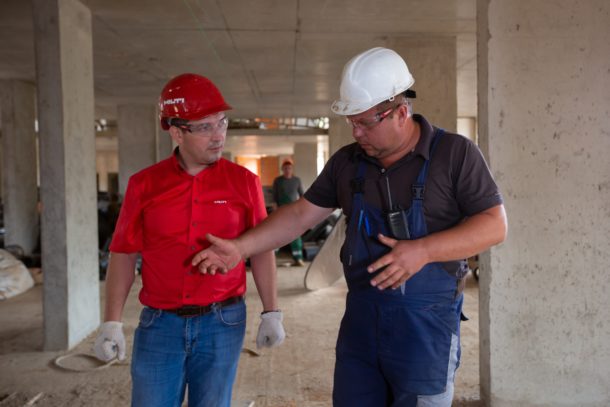Running a construction business comes with numerous challenges, not least of which is managing the potential financial risks associated with the job. From property damage to on-site accidents, the construction industry is fraught with hazards that can lead to expensive claims. In this article, we’ll explore how construction companies can mitigate these financial risks by implementing robust risk management strategies and securing the right insurance coverage.

Understanding the Financial Risks in Construction
Construction projects are inherently risky due to the nature of the work. Whether it’s the use of heavy machinery, high scaffolding, or handling dangerous materials, there is always the possibility of accidents. These incidents can lead to severe injuries, property damage, or even fatalities, which could result in costly lawsuits or compensation claims.
Furthermore, delays caused by inclement weather, supply chain issues, or unforeseen circumstances can disrupt timelines, increasing overall project costs. When things go wrong in the construction industry, the financial fallout can be devastating for a business. It’s crucial for business owners to protect themselves from such risks by securing appropriate insurance and implementing effective safety protocols.
The Importance of Insurance for Construction Businesses
One of the most effective ways to protect your business is by investing in construction business insurance. This type of insurance provides essential coverage for various liabilities, including property damage, injuries, and legal claims. Without it, a single accident could put the entire company at risk, forcing it to cover expenses out-of-pocket. A well-tailored policy ensures that your business can weather unexpected financial storms and continue operating with minimal disruptions.
Construction business insurance can include several different types of policies depending on the specific needs of your company. One key type of coverage is general liability insurance, which covers third-party claims related to accidents or damages occurring on the job site. This form of insurance is especially important for construction companies, as it protects against the potentially crippling costs of litigation and settlement fees.
Additional Forms of Coverage
While general liability insurance is crucial, it may not be enough to cover all the risks your business faces. Depending on the scope of your operations, you may also need workers’ compensation insurance to cover medical expenses and lost wages if an employee is injured while working. Workers’ compensation is often legally required, but even in jurisdictions where it’s not mandatory, it’s highly recommended for construction companies due to the hazardous nature of the work.
Another key form of coverage is equipment insurance, which protects against the loss or damage of expensive machinery. Construction businesses rely heavily on their tools and equipment, making it vital to ensure they are covered in case of theft, vandalism, or accidents. Additionally, for businesses that take on design or consulting roles, professional liability insurance can help cover the costs of claims related to errors or omissions in professional advice or planning.
Risk Management Strategies
Aside from obtaining the right insurance, adopting comprehensive risk management practices can help mitigate financial risks. Regular safety training for employees is essential in reducing workplace accidents. Ensuring that all equipment is well-maintained and that safety protocols are followed can significantly decrease the likelihood of accidents.
Additionally, construction businesses can benefit from conducting thorough risk assessments before starting any new project. By identifying potential hazards and implementing preventive measures, businesses can reduce the risk of incidents and, in turn, lower their insurance premiums over time.
Conclusion
In the construction industry, financial risks are unavoidable, but they can be managed. By investing in appropriate insurance policies such as construction business insurance and taking proactive steps to minimise risks on-site, construction companies can protect themselves from costly claims and losses. With the right protection in place, your business can confidently move forward, knowing that you’re prepared for whatever challenges lie ahead.




Join the conversation: